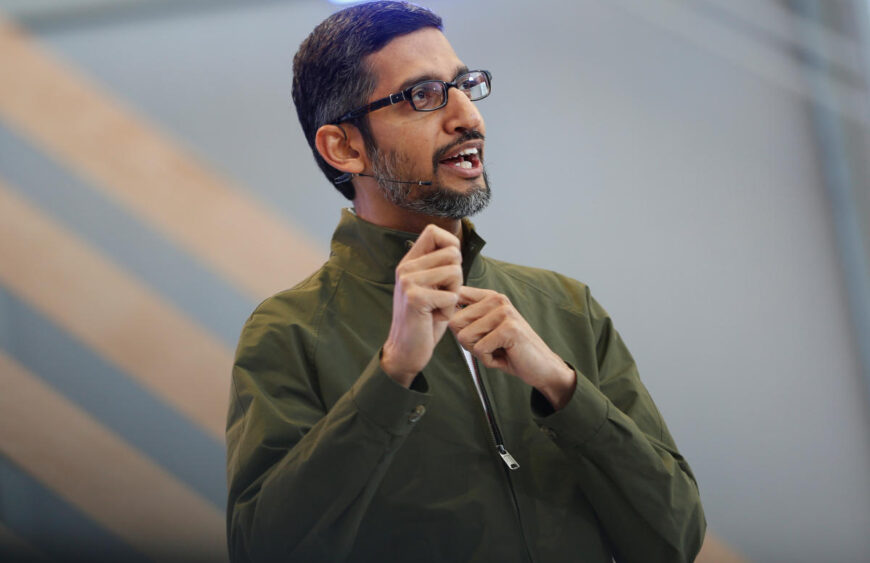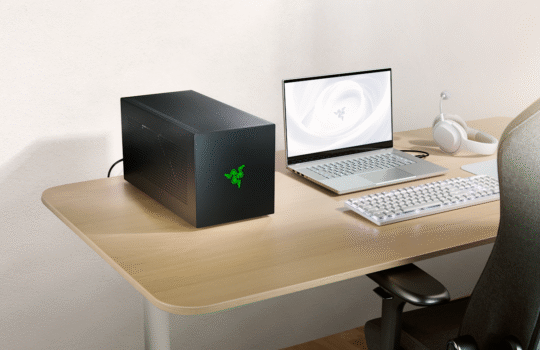New Android 16, Gemini AI and everything else to expect at Tuesday’s keynote

Google I/O, the search giant’s annual developer conference, kicks off on Tuesday, May 20. The event is arguably the most important on the company’s annual calendar, offering the opportunity for the company to share a glimpse at everything it has been working on over the past year — and contextualize its biggest priorities for the next twelve months.
The dance card for Google I/O was apparently so packed that the company spun off a dedicated Android showcase a whole week earlier. (See everything that was announced at the Android Show or go to our liveblog to get a feel for how things played out.) With that event now behind us, Google can stay focused on its most important core competency: AI.
Google’s presentation will come on the heels of announcements from three big rivals in recent days. Further up the Pacific coast, Microsoft is hosting its Build developer conference, where it’s already unveiled an updated Copilot AI app. Meanwhile, at the Computex show in Taiwan, NVIDIA CEO Jensen Huang highlighted a partnership with Foxconn to develop an “AI factory supercomputer” powered by 10,000 Blackwell AI chips. And Meta held its debut LlamaCon AI conference last month, but CEO Mark Zuckerberg’s plans for AI dominance have reportedly since hit some snags. (Apple will share its updated AI roadmap on June 9 when its WWDC developers conference kicks off.)
If you’d like to tune in from home and follow along as Google makes its announcements, check out our article on how to watch the Google I/O 2025 keynote. We’ll also be liveblogging the event, so you can just come to Engadget for the breaking news.
Android 16
The presentation featured Android Ecosystem President Sameer Samat, who took over for Burke in 2024. We saw Samat and his colleagues show off years, Android hasn’t had much of a spotlight at Google’s annual developer conference. Thankfully, last week’s Android Show breakout let Google’s mobile operating system take the spotlight for at least a day.
The presentation featured Android Ecosystem President Sameer Samat, who took over for Burke in 2024. We saw Samat and his colleagues show off the new Material 3 Expressive design, and what we learned confirmed some of the features that were previously leaked, like the “Ongoing notifications” bar. Material 3 Expressive is also coming to Wear OS 6, and the company is expanding the reach of Gemini by bringing it to its smartwatch platform, Android Auto and Google TV. Android is also amping up its scam-detection features and a refined Find Hub that will see support for satellite connectivity later in the year.
Speaking of timing, Google has already confirmed the new operating system will arrive sometime before the second half of the year. Though it did not release a stable build of Android 16 today, Samat shared during the show that Android 16 (or at least part of it) is coming next month to Pixel devices. And though the company did cover some new features coming to Android XR, senior director for Android Product and UX Guemmy Kim said during the presentation that “we’ll share more on Android XR at I/O next week.”
It clearly seems like more is still to come, and not just for Android XR. We didn’t get confirmation on the Android Authority report that Google could add a more robust photo picker, with support for cloud storage solutions. That doesn’t mean it won’t be in Android 16, it might just be something the company didn’t get to mention in its 30-minute showcase. Plus, Google has been releasing new Android features in a quarterly cadence lately, rather than wait till an annual update window to make updates available. It’s possible we see more added to Android 16 as the year progresses.
One of the best places to get an idea for what’s to come in Android 16 is in its beta version, which has already been available to developers and is currently in its fourth iteration. For example, we learned in March that Android 16 will bring Auracast support, which could make it easier to listen to and switch between multiple Bluetooth devices. This could also enable people to receive Bluetooth audio on hearing aids they have paired with their phones or tablets.
Android XR
Remember Google Glass? No? How about Daydream? Maybe Cardboard? After sending (at least) three XR projects to the graveyard, you would think even Google would say enough is enough. Instead, the company is preparing to release Android XR after previewing the platform at the end of last year. This time around, the company says the power of its Gemini AI models will make things different. We know Google is working with Samsung on a headset codenamed Project Moohan. Last fall, Samsung hinted that the device could arrive sometime this year.
Whether Google and Samsung demo Project Moohan at I/O, I imagine the search giant will have more to say about Android XR and the ecosystem partners it has worked to bring to its side for the initiative. This falls in line with what Kim said about more on Android XR being shared at I/O.
AI, AI and more AI
If Google felt the need to split off Android into its own showcase, we’re likely to get more AI-related announcements at I/O than ever before. The company hasn’t provided many hints about what we can expect on that front, but if I had to guess, features like AI Overviews and AI Mode are likely to get substantive updates. I suspect Google will also have something to say about Project Mariner, the web-surfing agent it demoed at I/O 2024. Either way, Google is an AI company now, and every I/O moving forward will reflect that.
Project Astra
Speaking of AI, Project Astra was one of the more impressive demos Google showed off at I/O 2024. The technology made the most of the latest multi-modal capabilities of Google’s Gemini models to offer something we hadn’t seen before from the company. It’s a voice assistant with advanced image recognition features that allows it to converse about the things it sees. Google envisions Project Astra one day providing a truly useful artificial assistant.
However, after seeing an in-person demo of Astra, the Engadget crew felt the tech needed a lot more work. Given the splash Project Astra made last year, there’s a good chance we could get an update on it at I/O 2025.
A Pinterest competitor
According to a report from The Information, Google might be planning to unveil its own take on Pinterest at I/O. That characterization is courtesy ofThe Information, but based on the features described in the article, Engadget team members found it more reminiscent of Cosmos instead. Cosmos is a pared-down version of Pinterest, letting people save and curate anything they see on the internet. It also allows you to share your saved pages with others.
Google’s version, meanwhile, will reportedly show image results based on your queries, and you can save the pictures in different folders based on your own preferences. So say you’re putting together a lookbook based on Jennie from Blackpink. You can search for her outfits and save your favorites in a folder you can title “Lewks,” perhaps.
Whether this is simply built into Search or exists as a standalone product is unclear, and we’ll have to wait till I/O to see whether the report was accurate and what the feature really is like.
Wear OS
Last year, Wear OS didn’t get a mention during the company’s main keynote, but Google did preview Wear OS 5 during the developer sessions that followed. The company only began rolling out Wear OS 5.1 to Pixel devices in March. This year, we’ve already learned at the Android Show that Wear OS 6 is coming, with Material 3 Expressive gracing its interface. Will we learn more at I/O? It’s unclear, but it wouldn’t be a shock if that was all the air time Wear OS gets this year.
NotebookLM
Google has jumped the gun and already launched a standalone NotebookLM app ahead of I/O. The machine-learning note-taking app, available in desktop browsers since 2023, can summarize documents and even synthesize full-on NPR-style podcast summaries to boot.
Everything else
Google has a terrible track record when it comes to preventing leaks within its internal ranks, so the likelihood the company could surprise us is low. Still, Google could announce something we don’t expect. As always, your best bet is to visit Engadget on May 20 and 21. We’ll have all the latest from Google then along with our liveblog and analysis.
Update, May 5 2025, 7:08PM ET: This story has been updated to include details on a leaked blog post discussing “Material 3 Expressive.”
Update, May 6 2025, 5:29PM ET: This story has been updated to include details on the Android 16 beta, as well as Auracast support.
Update, May 8 2025, 3:20PM ET: This story has been updated to include details on how to watch the Android Show and the Google I/O keynote, as well as tweak the intro for freshness.
Update, May 13 2025, 3:22PM ET: This story has been updated to include all the announcements from the Android Show and a new report from The Information about a possible image search feature debuting at I/O. The intro was also edited to accurately reflect what has happened since the last time this article was updated.
Update, May 14 2025, 4:32PM ET: This story has been updated to include details about other events happening at the same time as Google I/O, including Microsoft Build 2025 and Computex 2025.
Update, May 19 2025, 5:13PM ET: Updated competing AI news from Microsoft, Meta and NVIDIA, and contextualized final rumors and reports ahead of I/O.
If you buy something through a link in this article, we may earn commission.
Trending Products






